## Ready to Level Up Your Locksmith Skills?
Thinking about polishing your locksmith skills? You’ve come to the right place! There are plenty of fantastic certification courses out there that can help you become a pro.
Whether you’re just starting or looking to expand your knowledge, these programs cover everything from basic lock picking to high-tech security systems.

## Why Certification Matters
**Getting certified can seriously boost your job potential and salary in the locksmith world.** Did you know that locksmiths in the U.S. typically earn anywhere from $30,000 to $70,000 a year? This depends on experience and qualifications.
By investing in a quality certification course, you’re paving your way toward a rewarding career!
### 1) Certified Registered Locksmith (CRL)
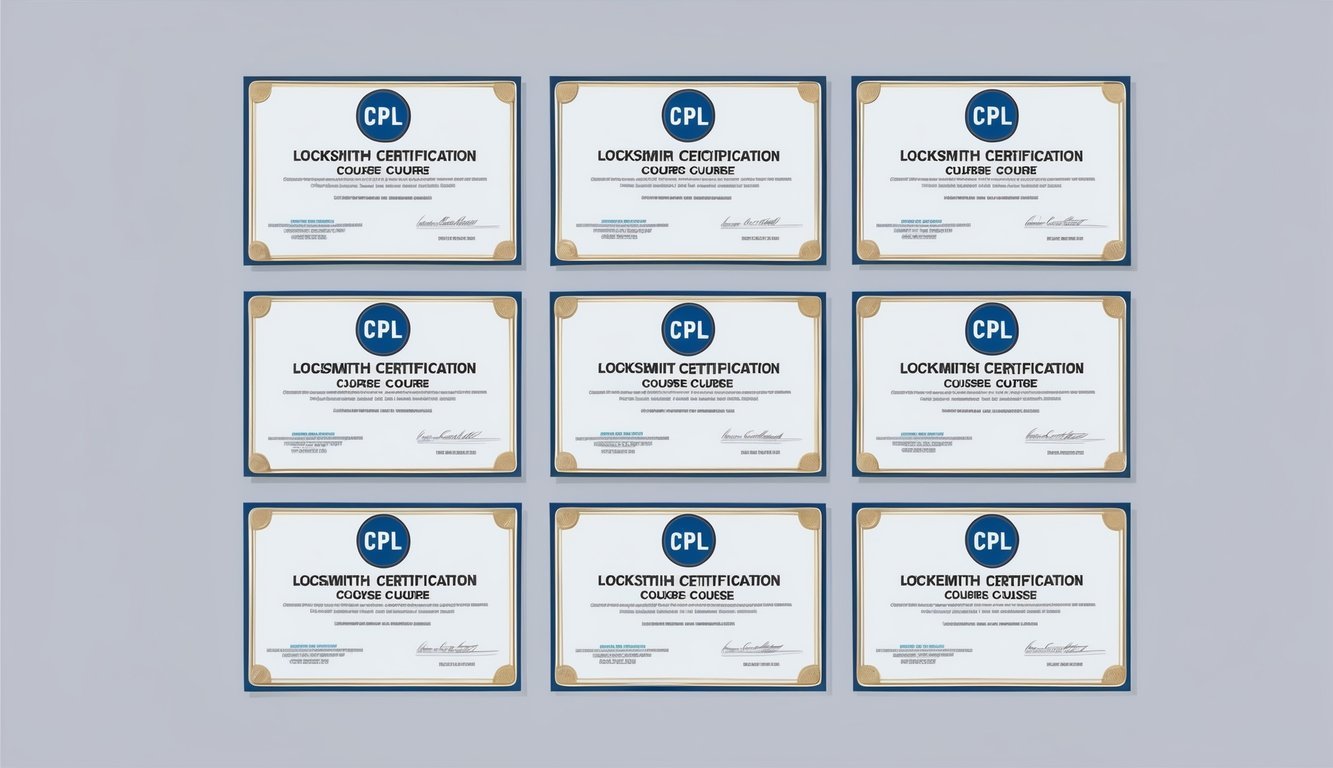
Thinking of kicking off your locksmith journey with a solid base? The **Certified Registered Locksmith (CRL)** certification might be perfect for you.
Offered by the Associated Locksmiths of America (ALOA), this entry-level cert shows employers and clients you’ve got what it takes.
To secure your CRL, you’ll need to tackle exams in **10 mandatory categories**—think key blank identification and professional lock opening techniques.
You’ll also choose **two elective categories** to start focusing on what interests you most.
It’s a great way to demonstrate your general locksmithing knowledge and gives you a solid foothold before exploring more advanced certifications.
### 2) Certified Professional Locksmith (CPL)

Want to step your game up? The **Certified Professional Locksmith (CPL)** certification is your next move.
Also provided by ALOA, this is the second level of certification and sure to impress!
For the CPL, you’ll face a more challenging exam covering **12 mandatory categories** plus at least **two electives**.
It’s designed to truly test your locksmithing chops.
Landing this cert shows you’re adept with locks, keys, and security systems for both residential and commercial applications.
As employers often look for this credential, it can really set you apart in the job market.
Ready to give it a go? There are practice tests available online will help you gear up for the real deal!
### 3) Certified Master Locksmith (CML)
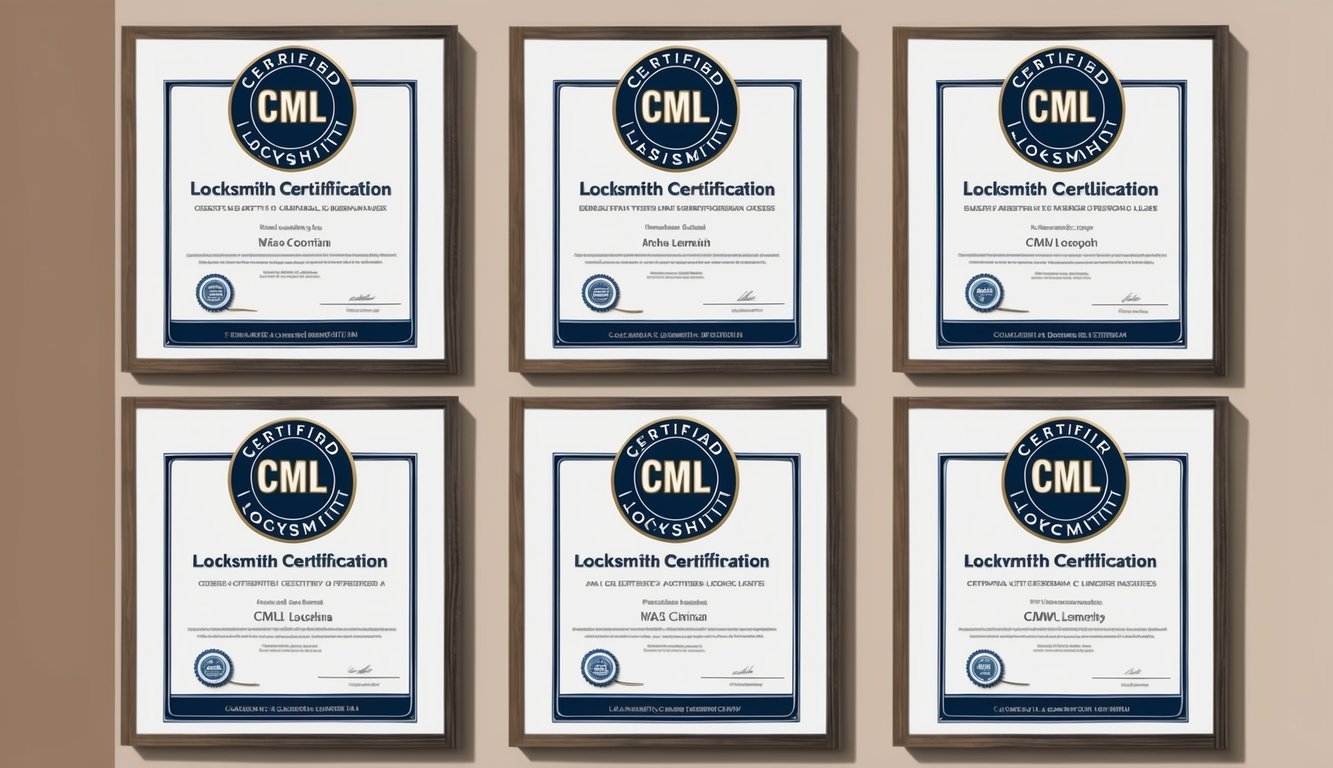
Want to be the gold standard in locksmithing? You’ll need the **Certified Master Locksmith (CML)** certification, the top tier offered by ALOA.
Passing this prestigious title means you’re a master in nearly everything locksmith-related.
To snag your CML, you’ll pass rigorous exams covering advanced topics like electronic security systems and safe work.
It’s no easy feat, requiring plenty of experience and a good dose of dedication.
But once you earn it, you’ll be seen as a top-tier talent, which can greatly increase your career options and income.
### 4) Safe Tech Certification
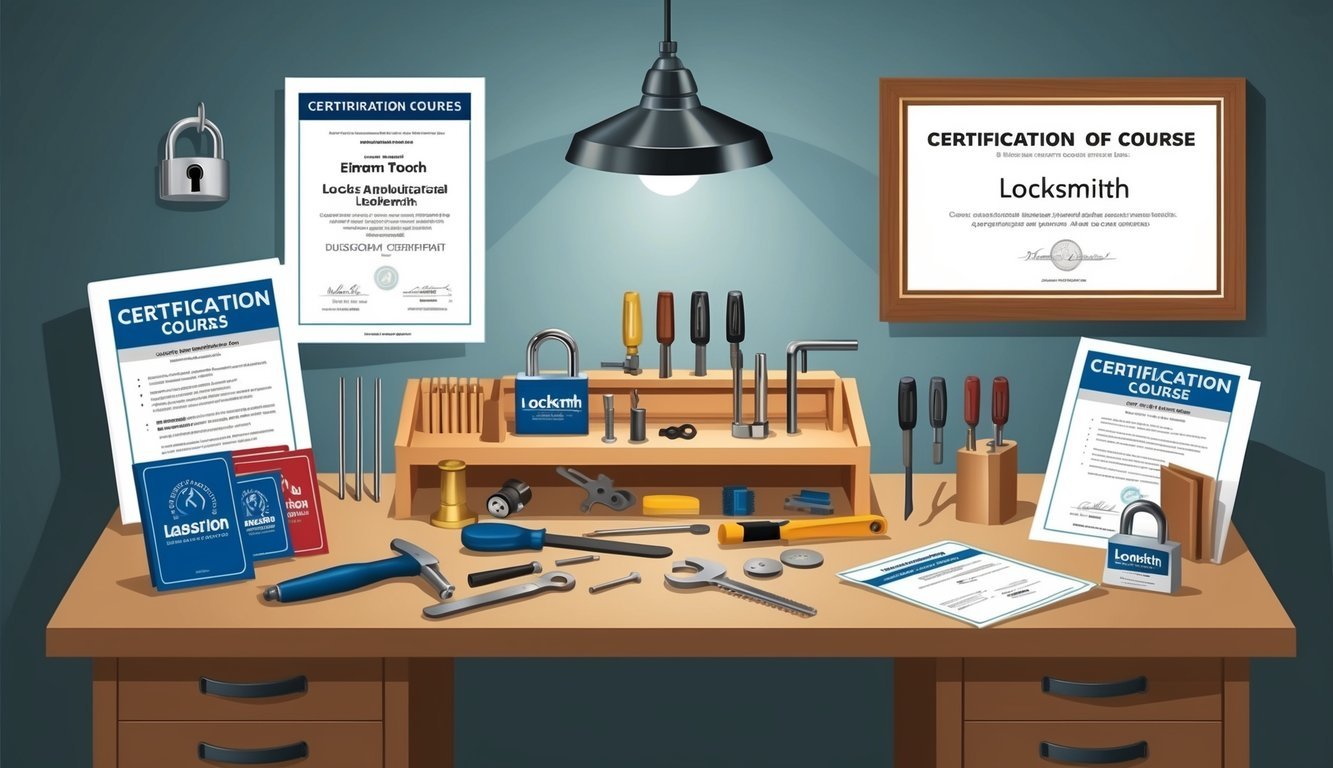
Interested in cracking safes with finesse? The **Safe Tech Certification course** is your ticket to becoming a certified safe and vault technician.
Perfect for anyone wanting to work with high-security safes, this course covers GSA-approved security containers and teaches you how to maintain, service, and inspect them.
Expect hands-on training with real safes, both mechanical and electronic.
By the end of the course, you’ll be all set to tackle safe-related jobs confidently.
This certification can open doors for military personnel, government employees, and commercial locksmiths looking to elevate their careers.
### 5) Automotive Locksmith Certification
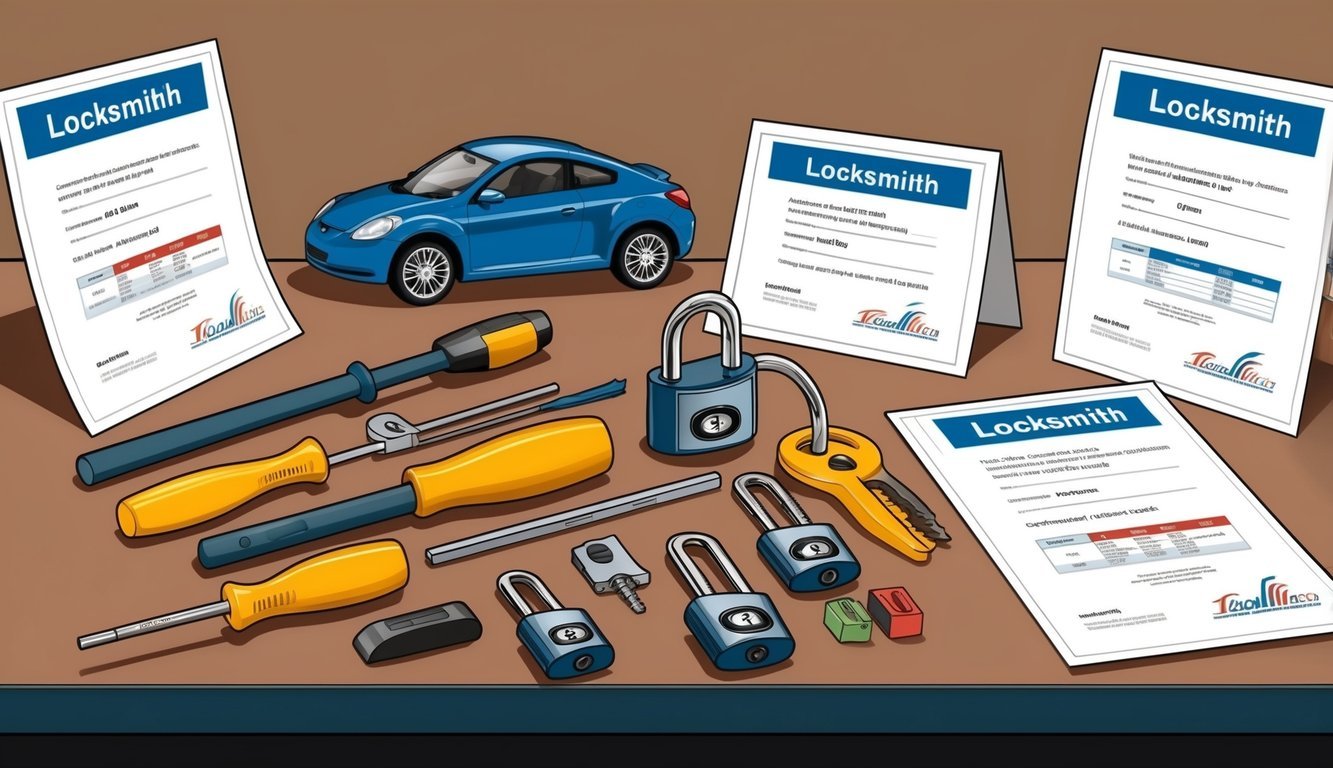
Got a passion for cars? Then an **automotive locksmith certification** could be just what you need.
This cert zeroes in on the unique challenges of vehicle locks and keys.
Programs like the **Certified Automotive Locksmith (CAL)** from ALOA require you to pass a written exam after some training.
If you’re better with online learning, check out the **Automotive Locksmith Beginner’s Course** to get the basics and even the ins-and-outs of BMW key programming.
Don’t underestimate the value of this cert—it shows potential employers you can handle car lock issues like a pro!
### 6) Forensic Locksmith Certification
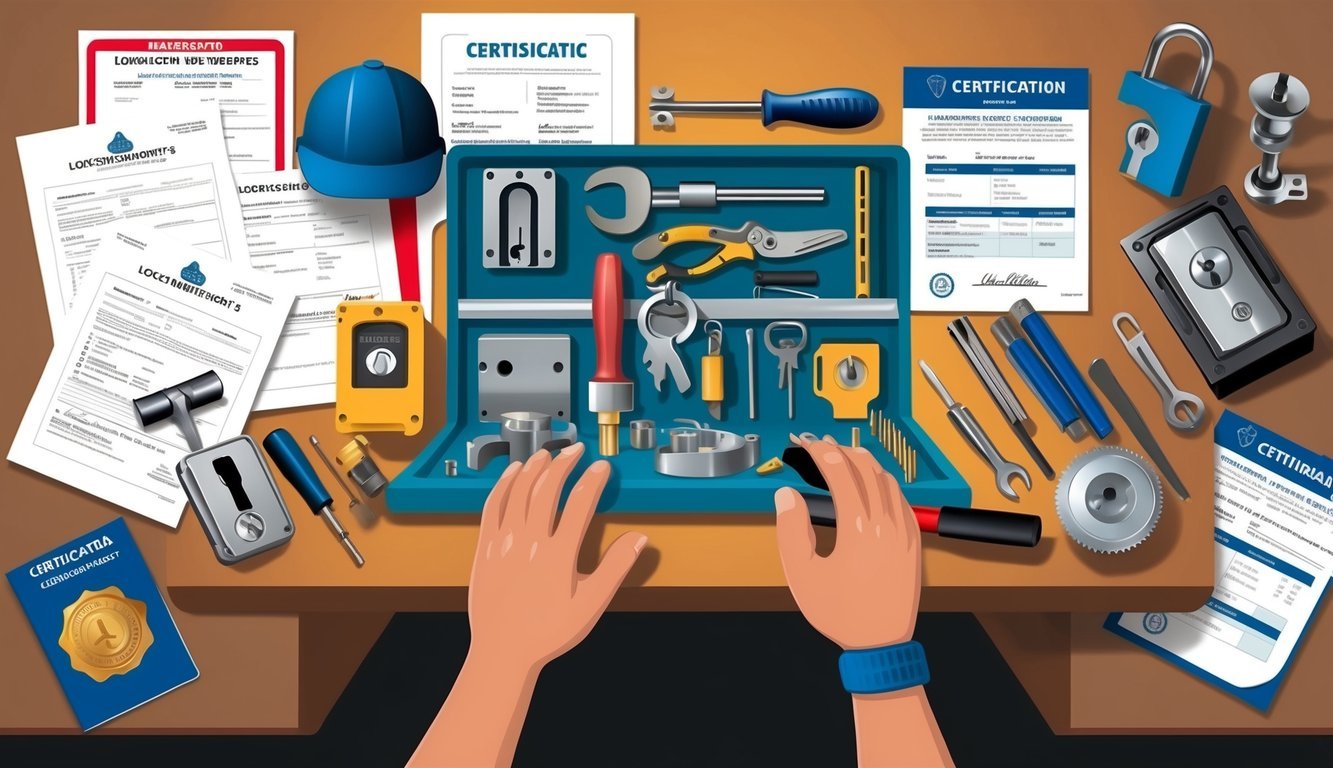
Want to take your skills to the next level with a bit of investigative flair? The **Certified Forensic Locksmith (CFL)** credential teaches advanced techniques for analyzing and preserving evidence related to lock tampering and forced entry.
Offered by the **International Association of Investigative Locksmiths (IAIL)**, this certification covers everything from evidence collection to crime scene preservation.
Becoming a CFL might need you to have some experience under your belt, but hey, the unique skills you gain can make you a go-to in the field.
### 7) Institutional Locksmith Certification

If you’re keen on securing large buildings, the **Institutional Locksmith Certification** might be your calling.
It’s just right for those working in hospitals, schools, or prisons.
This program has three levels, letting you start as a Certified Institutional Locksmith and work your way up to Certified Master Institutional Locksmith.
Training includes everything from basic lock picking to advanced master keying techniques.
You’ll become an essential asset in any large institution with the skills you’ll acquire.
## Why Get Certified?
With a certification under your belt, you’ll not only enhance your skills but also position yourself for better job opportunities.
It’s one smart step for anyone looking to make their mark in this field!
### Boosting Career Prospects
A locksmith certification can really elevate your career.
Employers notice that certification from ALOA shows you can handle tough tasks.
You’ll stand out from job seekers who aren’t certified.
Plus, did I mention that certified locksmiths often earn more? People trust certified pros, which could mean more clients if you decide to run your own shop.
### Enhancing Skills and Knowledge
Certification courses introduce you to the latest industry developments, ensuring you’re always in the loop.
You’ll learn about new locks and security systems, keeping your skills sharp.
Plus, many of these programs even cover ethics, preparing you to deal with sensitive situations.
### Choosing the Right Certification Program

When it comes to picking the best locksmith certification program, it’s crucial to consider a few key factors.
#### Factors to Consider
Start by looking at program length and cost.
Most locksmith training programs typically run between **$800 and $1,000**.
Are you leaning more towards online or in-person classes? Online options provide flexibility, but hands-on training is super valuable in locksmithing!
Next, check the curriculum to see if it covers essential skills like key cutting, lock picking, and safe cracking.
You’ll want a program that also includes new technology like electronic locks.
And don’t forget to consider the school’s reputation.
Look up reviews from past students—did they find jobs easily afterward?
#### Accreditation and Recognition
Be sure the program is legit.
Look for certifications from respected groups like the **Associated Locksmiths of America (ALOA)**, which offers the highly-regarded CPL certification.
Check if the certification holds weight in your state, as some areas require specific licenses to work as a locksmith.
It’s also wise to chat with local locksmith companies about which certifications are most valued.
## Frequently Asked Questions
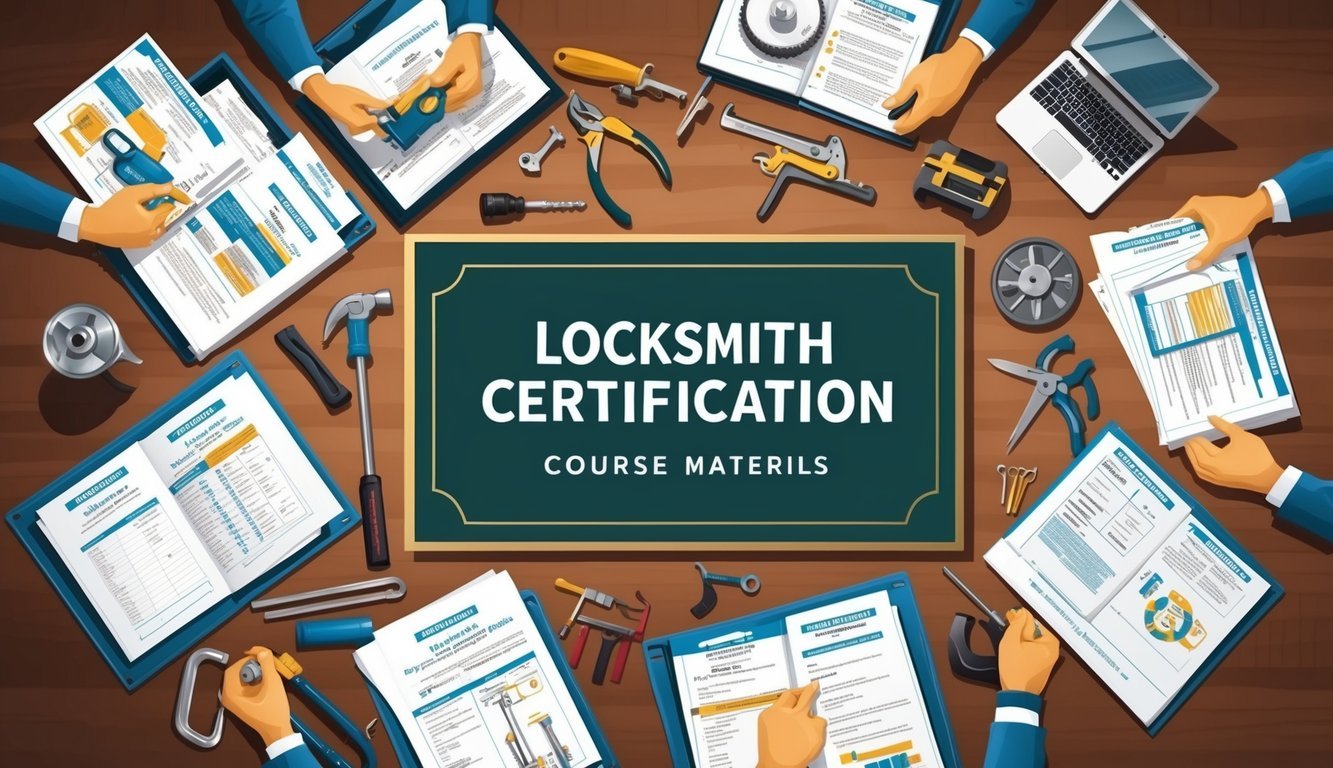
Locksmith certification courses can seem a bit overwhelming, so let’s tackle some common questions you might have!
### How can I find locksmith certification courses near me?
Searching online for local trade schools or community colleges is a great start! Many states have **vocational training centers** offering locksmith programs.
And don’t forget to check local locksmith associations for nearby training options!
### What are the costs of attending locksmith school in different states?
Costs can vary widely! Online locksmith programs usually range from **$400 to $1,000**, while in-person classes at trade schools might hit anywhere from **$1,000 to $5,000 or more**, depending on your location.
### Are there credible online locksmith certification courses?
Absolutely! Yep, there are reputable online courses available, like those from the **American Locksmith Academy**.
Just make sure they’re recognized by locksmith associations for credibility.
### What kind of certification do I need to become a locksmith?
You don’t necessarily need a certification to start as a locksmith, but it definitely boosts your skills and job prospects.
The **Certified Registered Locksmith (CRL)** is a great entry point, and as you gain experience, you can aim for higher certifications like the **CPL** or **CML**.
### Can I take locksmith certification courses for free?
Free full certification courses are pretty rare, but some websites might offer free info.
If you’re looking to save some bucks, try finding apprenticeships or see if local locksmiths offer training—you might find something cheaper than formal courses.
### What does the national certificate in locksmithing cover?
The national certificate, like the **CRL**, tests your understanding of locksmith fundamentals such as locks, keys, and security systems.
Holding this certification shows potential employers you’re serious about your career and can lead to better job opportunities and pay.
Plus, it’s a solid stepping stone for advanced certifications!
Ready to take the leap into a rewarding locksmith career? With the right training and certification, you’ll be well on your way to success!

